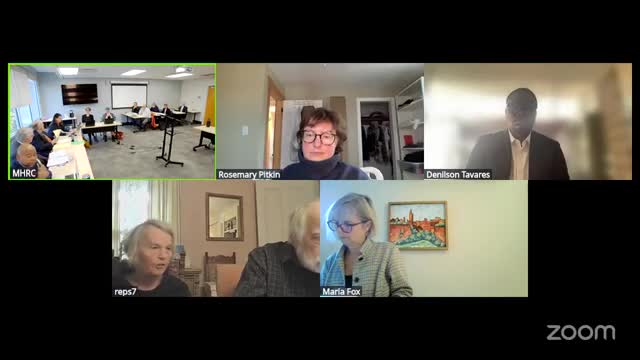Commission staff warn HUD guidance and federal shutdown could jeopardize fair-housing contract and payments
Get AI-powered insights, summaries, and transcripts
Subscribe
Summary
Commission staff told Maine Human Rights Commission members that new HUD guidance and a federal government shutdown have created uncertainty about whether the agency will keep — or be paid under — its HUD fair-housing contract for the coming year.
At a Maine Human Rights Commission meeting, staff reported that new guidance from the U.S. Department of Housing and Urban Development and an ongoing federal shutdown have put the commission’s HUD contract and recent federal payments at risk.
The commission’s director told commissioners the HUD guidance says an agency may lose "substantial equivalency" — and its HUD contract — if the agency enforces protections beyond those in the Federal Fair Housing Act. "They specifically list [redacted in record], gender identity, and source of income, all of which we cover," the director said during the meeting. The director added that a separate problem is the federal shutdown: "we have not therefore been paid for either our HUD contract or our CDOT contract since the vouchering process used for both of those happened in October," and said the agency could manage without those funds for about a year.
Why this matters: The state commission dual-files some housing matters with HUD and receives contract payments for substantial-equivalency work. If HUD withdraws substantial-equivalency status or cannot process vouchers because its enforcement office is furloughed, the commission risks both losing the contract and not being paid for work already completed.
During discussion, staff told commissioners the Fair Housing Enforcement Office has suffered layoffs and an uncertain legal status, and that if HUD staff are not working there will be fewer federal investigations and fewer processed vouchers. The director said staff will continue state investigations for the protected classes the commission enforces but that payment and contract status are uncertain while HUD’s staff and contract-processing operations remain affected.
The commission did not take a formal vote on funding steps at the meeting; staff said they would keep the board updated as more information arrives and as the federal situation evolves.
The meeting record shows staff raising three linked risks: (1) HUD guidance narrowing bases eligible for dual filing could remove the commission’s HUD contract; (2) the federal shutdown has halted voucher-processing and payment for work already completed; and (3) HUD’s internal staffing reductions make it uncertain who, if anyone, will be available to process contract vouchers. Commissioners asked clarifying questions but did not approve specific contingency spending or program changes at the meeting.
Looking ahead: Staff said it will notify commissioners as soon as HUD or the courts provide clarity on staff rehiring or contract processing; meanwhile the commission will continue to investigate locally filed housing complaints for the protected classes it enforces.
